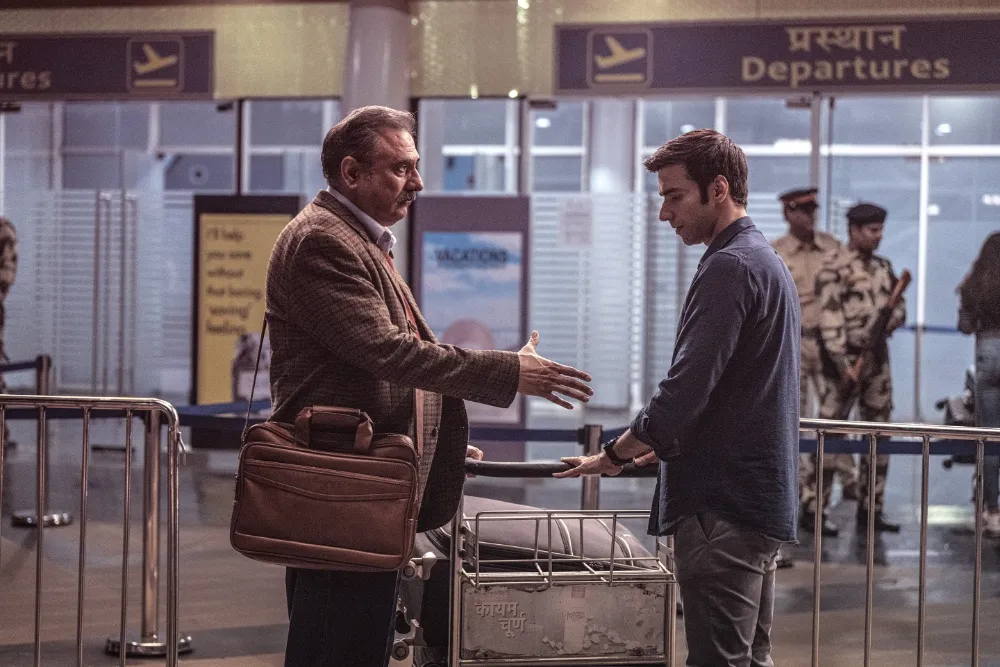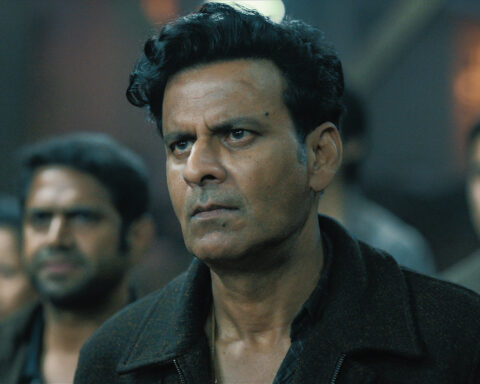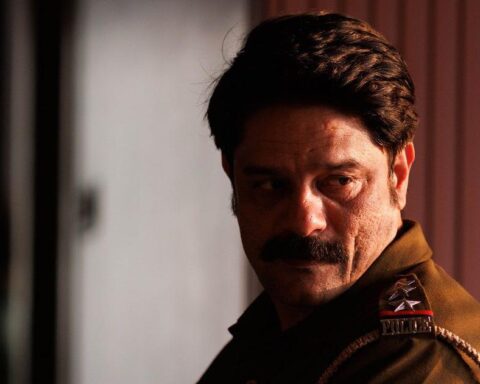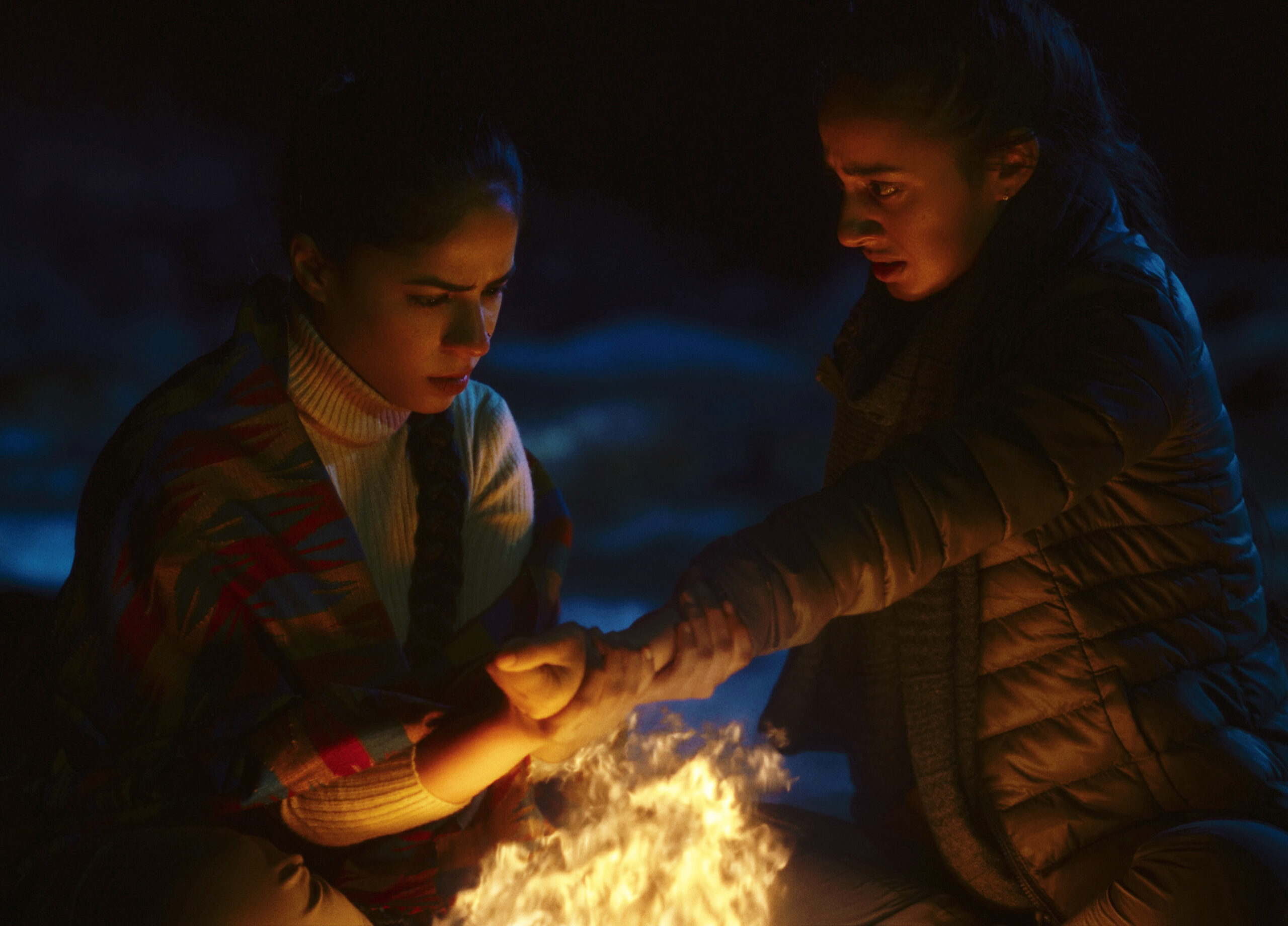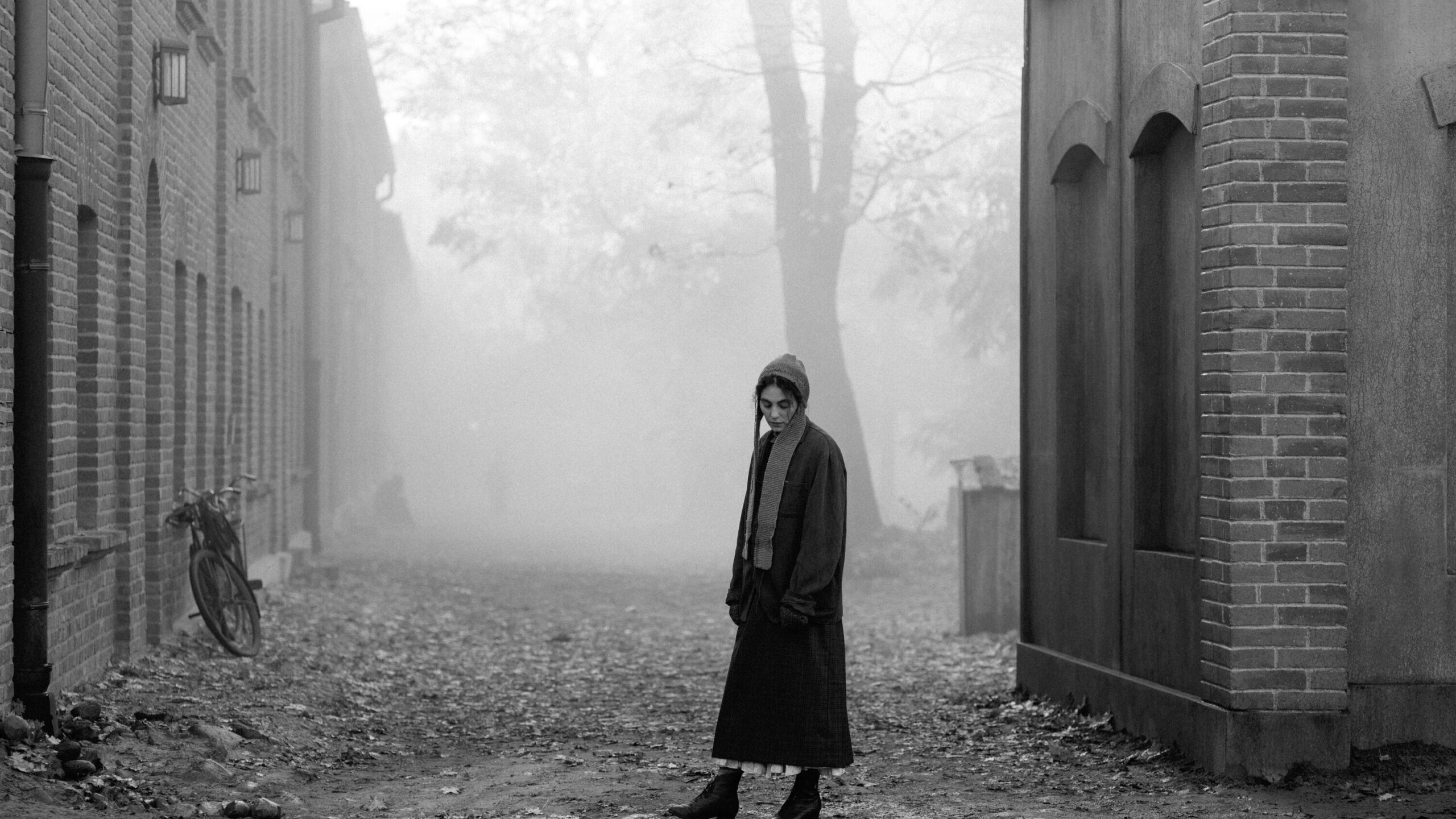The father-son relationship is a uniquely complex one, often fraught with unspoken expectations and shifting power dynamics. While ideally a source of encouragement and support, it is often a battleground of conflicting emotions. The Mehta Boys, directed by Boman Irani, offers an amusing perspective on this intricate dynamic, exploring their relationship with nuance. The film delves into the delicate and often fraught dynamics of their bond, showcasing the bitter-sweet push and pull of love and resentment that fuels powerful drama.
Amay (Avinash Tiwary) is a talented but self-doubting architect in Mumbai. Despite encouragement from his girlfriend and colleague, Zara (Shreya Chaudhry), and his boss, Saumik (Siddhartha Basu), he lacks the courage to submit his building design for an upcoming project. One day, he receives news of his mother’s death and travels to his hometown, Navsari, for the funeral. It is revealed that Amay has a strained relationship with his father, Shiv (Boman Irani). His sister, Anu (Puja Sarup), plans to take Shiv to Florida, where she lives, but a flight delay forces Shiv to stay in Mumbai for two days. Anu asks Amay to host Shiv, and despite his reluctance, they are compelled to spend 48 hours together—a period fraught with conflict.
The Mehta Boys operate on multiple levels. While it can be interpreted as a sharp critique of modern Indian architecture, highlighting the impracticality of glass and steel in India’s climate, the film’s true power lies in the complex and often fraught relationship between Shiv and Amay. Boman Irani’s multifaceted role as writer, director, and actor allows him to portray these characters with nuanced empathy, avoiding simplistic caricatures. The screenplay, co-written by Irani and Alexander Dinelaris (known for Birdman), skillfully navigates the delicate balance between humour and heartbreak, transforming initial embarrassment and awkwardness into empathy and acceptance. This deeply felt family drama avoids a pessimistic conclusion. Instead, it offers a glimmer of hope, suggesting that genuine understanding and reconciliation are possible, even amidst life’s disappointments.
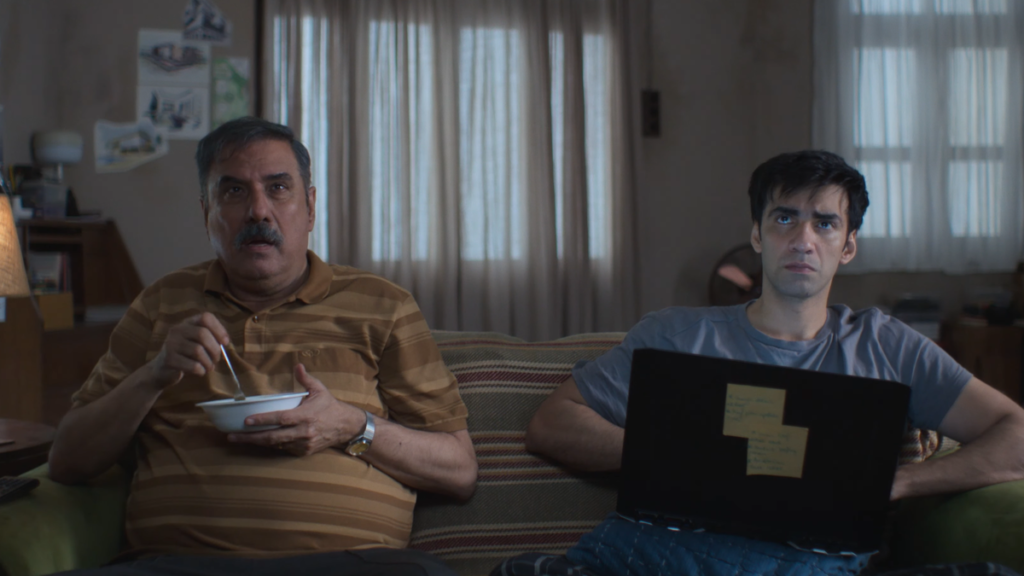
The canvas of the film is etched with two complex individuals, marked by their flaws, failures, mistakes, and regrets; they are capable of doubt and suspicion, making them feel like real people. Shiv’s seemingly innocuous conversation with a mason, subtly probing Amay’s architectural knowledge, reveals a father’s lingering scepticism about his son’s chosen profession. His constant, almost compulsive, engagement of the handbrake, while Amay drives, underscores his deeply ingrained need to control, a paternal anxiety bordering on destructiveness rather than care. The single, small family photograph in Amay’s apartment, conspicuously excluding Shiv, speaks volumes about the emotional distance that has grown between them, a visual representation of their fractured relationship. The inevitable drunken confrontation strips away any pretence, exposing the raw nerve of their deep-seated resentment: Amay’s feeling of perpetual judgment from his father. This tension manifests in Shiv’s stubborn resistance to Amay’s modern, ambitious lifestyle, culminating in arguments and a near-fatal car crash, a potent symbol of their destructive dynamic.
Furthermore, both Shiv and Amay are metaphorically uprooted, each searching for a stable anchor, both emotionally and physically. As Shiv prepares to leave for the US, bound by a promise to his deceased wife, his seemingly casual inquiry about cricket in America, and his wistful mention of his prized Sunil Gavaskar-signed bat, reveal him clinging to past glories and a sense of identity that is about to be irrevocably severed. Leaving this cherished memento behind underscores the finality of his departure. He is haunted by memories of his late wife, triggered by glimpses of woman wearing a flower garland, Veni, in her hair—a sight that evokes wistful recollections of his departed life partner. Amay, meanwhile, inhabits a top-floor apartment, drawn to the panoramic Mumbai view, a symbol of his aspirations. Yet, the peeling paint and leaky ceiling, culminating in a roof collapse during the monsoon, speak to a deeper instability. It becomes a potent metaphor for the state of Amay’s career and his fractured relationship with his father, both in dire need of repair. Adrift and seeking resolution, Shiv and Amay’s lives mirror each other’s disrepair. However, the subtle shift in their relationship represents genuine progress, mirroring the reconciliation between father and son as they share a laugh watching Laurel and Hardy on television. This moment of shared joy, however fleeting, underscores the film’s nuanced approach to family dynamics. Shiv’s accident catalyzes Amay, prompting him to embrace his responsibilities. His successful architectural presentation, advocating for cultural preservation, marks a professional triumph that coincides with his reconciliation with Shiv. This quiet acknowledgment of the lessons learned precedes Shiv’s departure, leaving a lingering sense of bittersweet closure.
The cinematography by Krish Makhija shines, its detailed and complex visuals significantly contributing to the film’s discerning character study.
Charu Shree Roy’s editing creates a brisk pace, keeping the film engaging and never stultifying. The measured pacing allows the characters to evolve organically, giving them ample breathing room to grow and change before our eyes. Boman Irani, Avinash Tiwary, Shreya Chaudhry, Puja Sarup, and Siddhartha Basu deliver compelling performances, each bringing a distinct aura, humour, and empathy to their characters.
While the screenplay occasionally meanders, and the destination of this emotional journey is largely predictable, The Mehta Boys nonetheless resonates. Even if the narrative’s twists and turns are anticipated, the film culminates in a satisfying, if not entirely surprising, resolution. It is one of those films that prioritizes emotional truth over narrative novelty. In doing so, it crafts a quietly affecting viewing experience.
